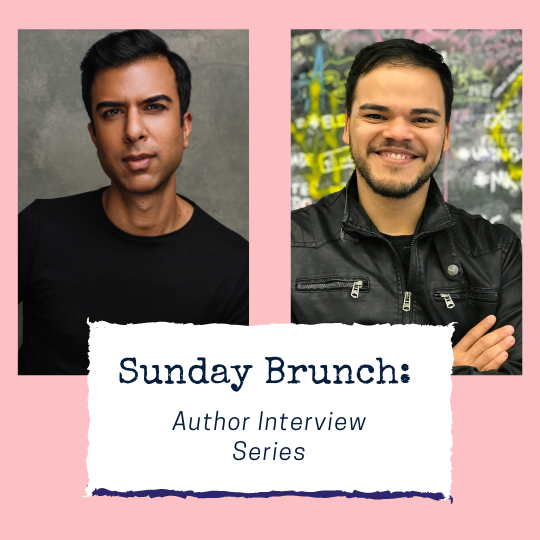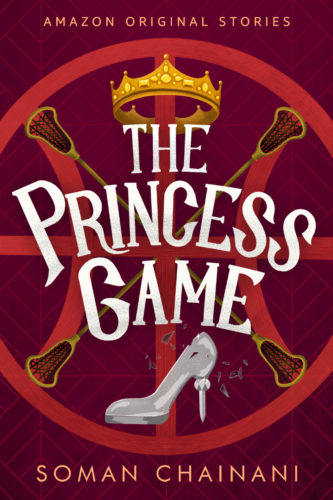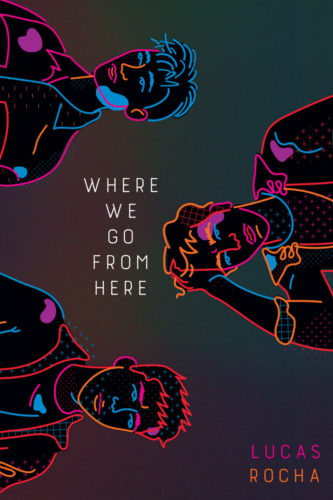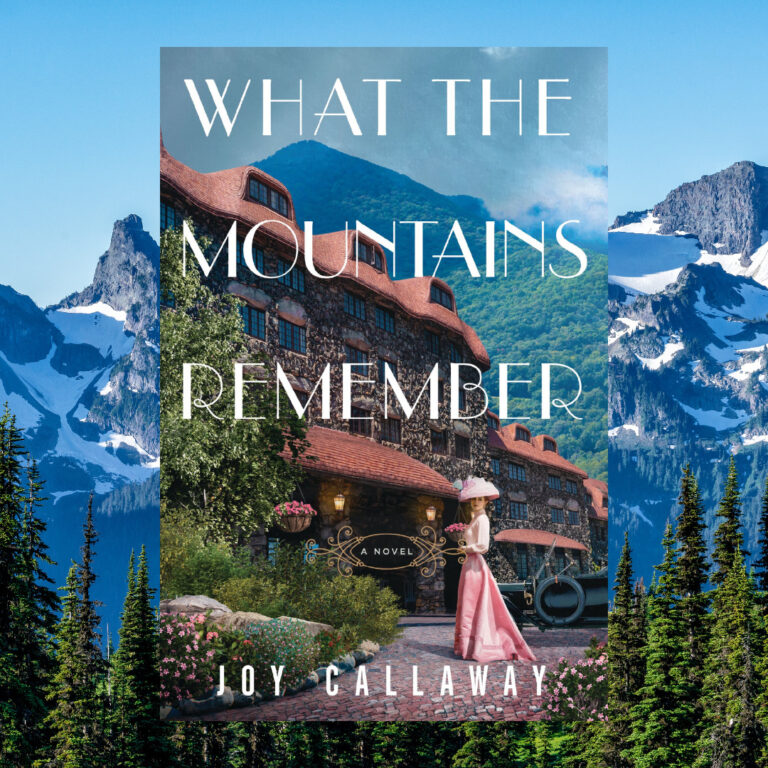[Note from Frolic: Our resident YA expert Aurora got the opportunity to interview authors Soman Chainani and Lucas Rocha and ask them five(ish) questions each. Up first, Soman Chainani!]
Aurora: What was your inspiration behind your most recent story?
Soman Chainani: Like many children in this country, the only versions of the fairy tales I knew growing up were the Disney ones. And the Disney versions turn most of the princesses into passive dolls, while the prince is responsible for rescuing them and slaying the dragons. Consciously or not, the Disney canon puts males on a higher pedestal than the females. I started to ask the questions: what does this do to our perceptions of romance? Do girls expect boys to be their romantic saviors? What pressures do the boys feel to act like “princes”? The gap between what girls might expect boys to be and what they actually are… That’s what intrigued me. And in the darkness of that space, I began to imagine the rules of The Princess Game.
What character in this story do you most relate to and why?
Growing up a boy — particularly in America — can be a tricky balance between navigating your own identity and the weary tropes of masculinity. More and more, it seems culture brands sensitivity as weakness; indeed, it’s become so caricatured that it’s infected our politics. There is a man that votes Red and a man that votes Blue and if you believe the cartoonish representations of each, they virtually represent two different species of male. With Callum Pederson, the main character of the The Princess Game, I wanted to explore this tension between sensitivity and manhood and make that tension as life and death as I could. He’s brought undercover as a student to a local high school to investigate the murders of several girls, and his determination to find justice for these girls is his driving force. At the same time, he’s seduced by the power of the Princes, the group of popular male athletes at the school, who clearly don’t want the murder solved. Torn between justice and pride… that’s Callum’s crisis. And I think it’s the crisis of almost every boy in America at some point. It certainly has been for me.
Why do you feel stories with powerful and unique characters are so popular and have such a voice right now?
We’ve become such sophisticated consumers of stories over the past decade, with the flourishing of content on so many different platforms, whether it’s television, movies, videogames, theater, and books. We’ve begun to see through conventional structures of storytelling and rote archetypes. Not only that, but our choice of content is so vast and varied that to stand out requires not just uniqueness, but a blazing authenticity. I think for a long time, precision and excellence in storytelling were what attracted audiences and success. Now it’s boldness. Or a voice we haven’t heard before. Which is why in The Princess Game, I took the narrator or a narrative voice out of it entirely. I wanted the characters to speak entirely for themselves and commit to the challenge of making the success of the piece rely on their voices.
Please describe the content of your latest read and what can readers expect from it.
The Princess Game is at once a police procedural, serial killer whodunit, and high school drama, about two cops who go undercover at a suburban high school, investigating the deaths of several female students. The girls have been killed to fairy tale themes, which leads to the murderer being branded as the Princess Killer. In a way, it’s like a cross between 21 Jump Street and Seven. As to what readers can expect from it, the story is told entirely through police tapes, so you’ll be reading transcripts from all the suspects in the case, specifically the popular male athletes known at school as the Princes (after the school mascot). The story is at once intense, horrifying, twisting, and mordantly funny, and it was at once hugely enjoyable and deeply disturbing to write.
On a larger level, The Princess Game is part of Faraway, a collection of retold fairy tales from Amazon Original Stories that take the happily-ever-after in daring new directions. FARAWAY will be published on Dec. 15 from Amazon Original Stories and will be available free to Prime members, as well as Kindle Unlimited subscribers. Readers can download each story individually, or get the whole collection with just one click.
What’s next for you in the bookish world?
The film version of my series The School for Good and Evil is currently in pre-production from Netflix with Paul Feig directing and should be out in early 2022. I’ve just finished a new book of dark fairy tales that will be announced in early January and will be out in October 2021. Beyond that, I’m planning a new series that I’m just starting to work on.
Who is your current favorite writer? Why?
Right now, I’m just fascinated with any writers who commit to boldness and a high level of authenticity. Sally Rooney is up there — I’m curious what her third book after Conversations with Friends and Normal People will look like, given her way of writing has almost become part of our vernacular. I also love the cadences of Marina Abramovic, who is as wonderful a writer as she is a performance artist.
Any writing advice for aspiring writers?
Only tell a story you can tell. If someone else could write the story… it really isn’t yours. Find something that speaks to who you are as a person so that when you put it out into the world, it feels like nothing we’ve ever read.
Up next, Lucas Rocha!
Aurora: What was your inspiration behind your most recent novel?
Lucas Rocha: First of all, thank you so much for the opportunity to answer these questions! Where We Go From Here started to develop in my mind when I was working at the Brazilian Center of Health Studies, a non-profit organization that publishes a magazine for the diffusion of Health Studies. As a librarian, I worked there copyediting articles, and once in a while a theme caught my attention. One day I stumbled upon an article about how Brazilian people perceive HIV and HIV-positive people in the 21st century, and I saw a lot of misconceptions and prejudices in these interviews. So, thinking of ways to change that, I started to develop these three characters whose stories guide the novel, showing the ways in which they deal with HIV from different perspectives: a character that’s been recently diagnosed with HIV, a HIV-positive character that has been living with his diagnose for three years, and a third one, who develops a romantic relationship with one of the other two. What I intended to do was to show that the stories of HIV and HIV-positive people don’t have to be The Sad Story anymore; that people can thrive and, more than surviving, that they can be able to live full, happy and messy lives.
What character do you most relate to and why?
I relate in so many ways to all the main characters of this book, because they carry a lot of my own thoughts in different points of my life. But the cast of side characters is also very shiny and beautiful. The one I enjoy the most is Gabriel, the best friend of one of the main characters, just because he is the kind of person who is willing to grab his old car and drive 100 miles just to check if his best friend is okay. I have a lot of people like Gabriel in my life, so he makes me remember my own friends, and that’s a wonderful feeling.
Why do you feel books with powerful characters are so popular and have such a voice right now?
I think that readers are craving to see themselves in narratives, and we, as authors, are more than willing to portray those powerful characters as a reflection of all the wonderful and complex people that surround us. When you have a cast of powerful characters, that’s a sign that your readers are also powerful in their own ways. I love it when I can relate to a character to the point where I see their decisions—whether I like them or not—as smart and consistent with their own personality. And I feel very proud and excited to represent that, those real people!
Please describe the content of your latest book and what can readers expect from the read.
Where We Go From Here follows three main characters: Ian, Victor and Henrique. Ian opens the book by receiving the news that he is now HIV-positive, and after that, his world understandably turns upside down. At the clinic where he gets tested he meets Victor, who’s there for the same reason after Henrique, a guy that he may like more than he is willing to admit, discloses his own positive status. Victor tests negative, but Ian and him chat at a bus stop and Victor offers to connect Ian and Henrique for mutual support. Then, we follow the lives of these three Brazilian guys, their families, friends, hopes and dreams. The story I intended to tell may sound harsh because of the main subject, but this is not a book of sorrow or pain. Instead, it is a very funny and light novel, with drag queens, dorky jokes, romance and – the most important aspect of the story to me – true friendship. I hope that readers can read Where We Go From Here and realize that HIV is not a monster that puts your life in misery; it is only a chronic condition that can be treated, and that the life after a positive diagnosis can be a fulfilling one, full of beauty and color.
What’s next for you in the book world?
Being able to publish my first book in the US is such a wonderful thing as a Brazilian writer! This was also my Brazilian debut novel, and it all happened so fast and was undeniable beyond every dream that I could possibly have. As of right now, I’m working on my second novel, and my goal is to continue to share meaningful stories that can reach a lot of hearts and mean something to someone. My biggest wish with publishing these books beyond Brazil’s borders is to show that the lives, joys and sorrows of the young people of my country can also be universal.
Who is your favorite writer right now and why?
I have a full cast of favorites. In Brazil, my favorite writer is also a friend, Vitor Martins, who’s also going to publish his novel, Here The Whole Time, in the United States on November 10. It’s a very fun book about a fat character who has to spend fifteen days sharing his room with his life-long crush and neighbor, and the book brings a lot of discussions about self-love, fatphobia, friendship and love. Other writers that inspire me every day are: David Levithan, Benjamin Alire-Saenz, Iris Figueiredo, Angie Thomas, José Saramago, Gabriel García Márquez, Victoria Schwab, Stephen King, Abdi Nazemian, Donna Tartt, Joseph Cassara and many, many others.
What inspired you to write this unique novel for young adults?
When I had the initial spark to write Where We Go From Here, the first thing I did was search for YA novels that portraited discussions about HIV in a way that could be hopeful for the future, but I did not find many of them to feel like there were enough stories like this. I always wanted to write something that could be both entertaining and meaningful, and that could carry a positive message. The idea for this book—with a subject that many people still see with stigma and prejudice—was not only possible, but important as well so that the current generation of young readers don’t carry on the prejudice that the previous generation seems to have.
Which character was the hardest or most interesting to write in your latest book?
Victor was the most challenging character. He is the youngest one, the most privileged, and the one who has more to learn throughout the novel. He has his own journey to accept and understand what it means to be in a relationship with a HIV-positive person, and a lot of his prejudices and negatives thoughts are very different from my own thoughts and feelings about the subject, but he also expresses a lot of things that I used to think in my youth. So, I had to slip into his shoes for a moment, always having in mind that his growth was a part of the process, even if I did not always agree with his attitude.














